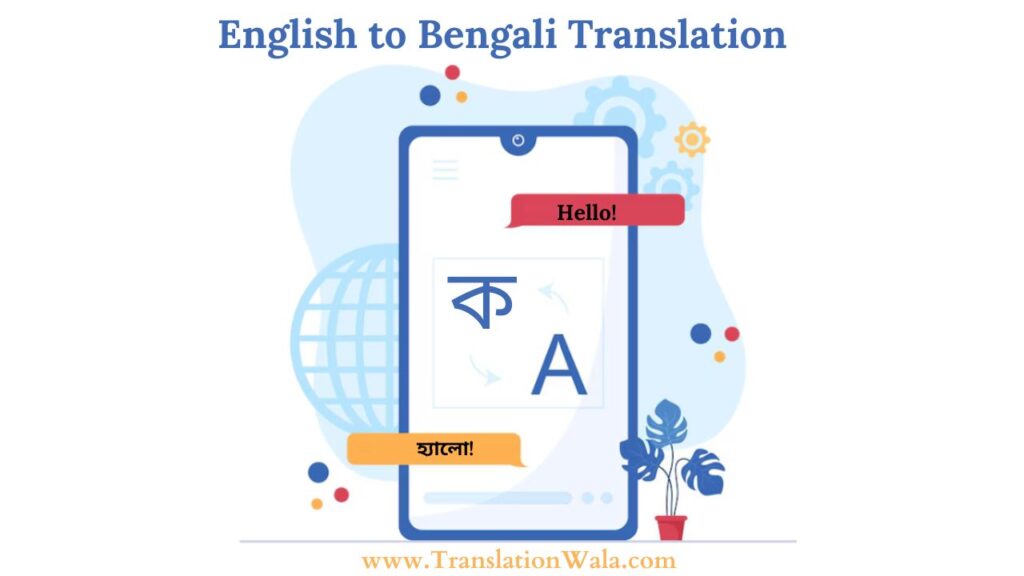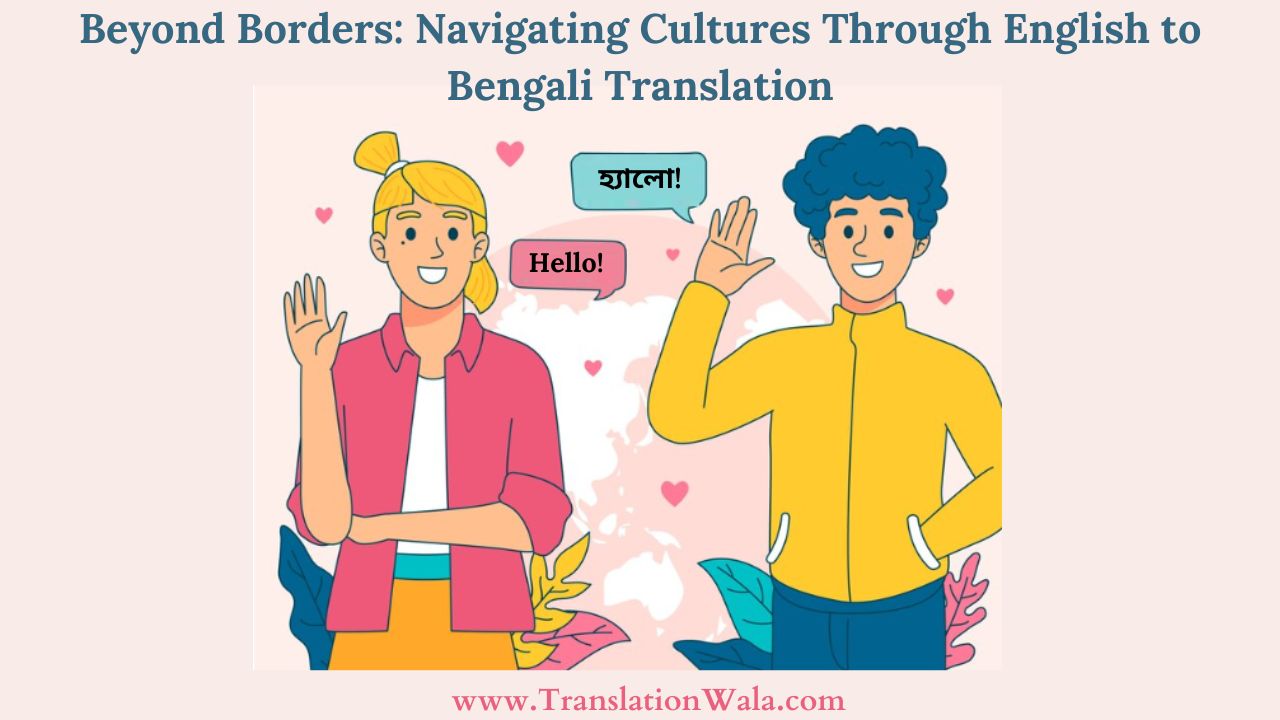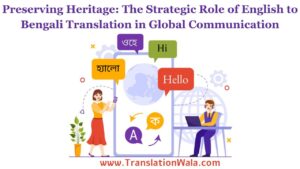It’s through language that we can connect with each other across long distances and ethnic gaps. When English to Bengali Translation, this bridge turns into an interesting trip that helps people from two very different societies understand each other better. It may seem simple to translate words, but it goes much deeper than that. It becomes a study of culture that goes beyond words.
As a world language, English has been shaped by many different things. Bengali is a unique language for Translations because it has a rich literature history and different regional versions. This process is more than just looking for similar words; it’s about getting to the heart of a message and finding the cultural references hidden in the text.
Challenges and Nuances
One of the hardest things is getting jokes, phrases, and colloquialisms across. In Bengali, a joke that makes cultural references might not be funny as much as it is in English. In the same way, translating words means getting to the bottom of what they mean and finding a Bengali version that makes sense.
To give you an example, the English phrase “kick the bucket” would not make sense when translated exactly into Bengali. In Bengali, a good translation would find a similar phrase like “pracheen shaan jeno khaowa” that means “to lose all former glory” to show what they mean by “death.”
The difference in how official each language is is another problem. English can be serious or casual, based on the situation. But Bengali has two different registers: “bhadralok” (formal) and “chalti bhasha” (informally). These need to be carefully thought through. If a business paper was turned into Bengali that is too casual, it would lose its seriousness.
Also Read: Bridging Worlds: English to Gujarati Translation Expertise

Bridging the Cultural Gap
So, how do Translation deal with these problems and effectively cross ethnic lines? Here are some important plans:
- Understanding the Target Audience: It is very important for Translations to know a lot about Bengali society, including its social rules and beliefs. This lets them make changes to the version so that it fits the crowd.
- Research and Context: They don’t just translate words, they translate thoughts as well. To make sure the translated text correctly conveys the intended meaning, it is necessary to do a lot of study on the subject.
- Finding Equivalents: There are times when straight readings are not possible. A good translation will find the closest word in Bengali that means the same thing and has the same effect. This could mean including culture references or comments in the translation.
- Maintaining the Original Voice: A good Translation tries to keep the voice and style of the original author while making sure the translation is culturally accurate. This is often very important when translating literature.
The Power of Translation
It’s not just easier to communicate when you translate from English to Bengali; it also helps people from different cultures interact. Translations of books, history records, and even movies let people see a different side of the world. They learn more about Bengali customs, culture, and way of life and grow to appreciate them more.
Translation is also very important for schooling and sharing information. People who know Bengali can get a bigger range of information because academic papers, study results, and training tools have been translated. This encourages the sharing of ideas and makes it possible for people from different countries to work together.
The Future of English to Bengali Translation
The need for skilled English to Bengali Translation will only grow as the world becomes more linked. With the rise of computer translation, some people may wonder if interpreters will soon be unnecessary. Human translators, on the other hand, are indispensable because they can handle the complexities of society and situation.
A mixed method is what the future of translation looks like: machines do the simple jobs, and people do the more complicated ones that need cultural knowledge.
Conclusion
Going from English to Bengali is a trip that is more than words can describe. We can better understand each other across lines if we are attentive, share knowledge, and love the different ways people live their lives. As the world becomes more connected, translators play a bigger part. A lot of people from around the world can learn from and help each other get better.



